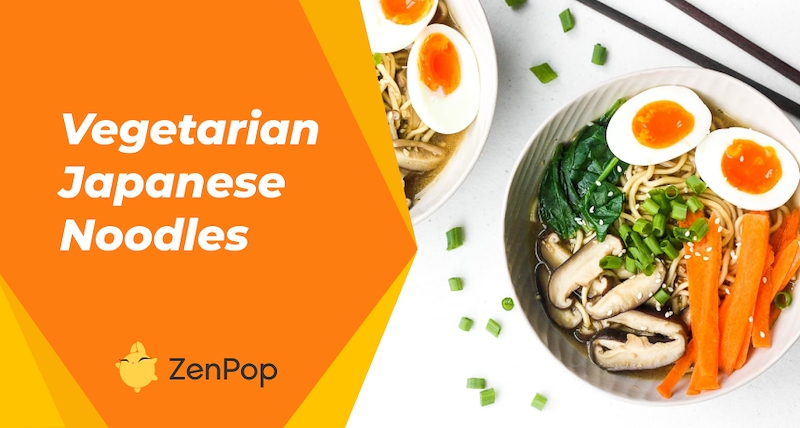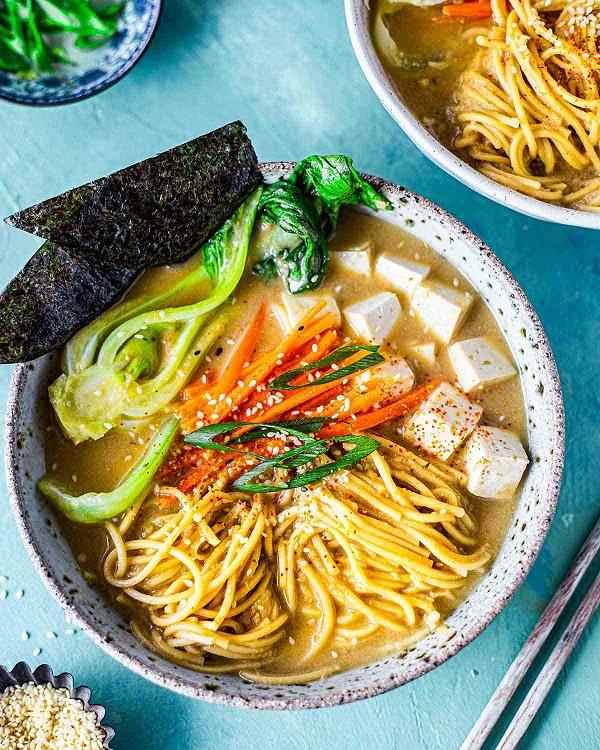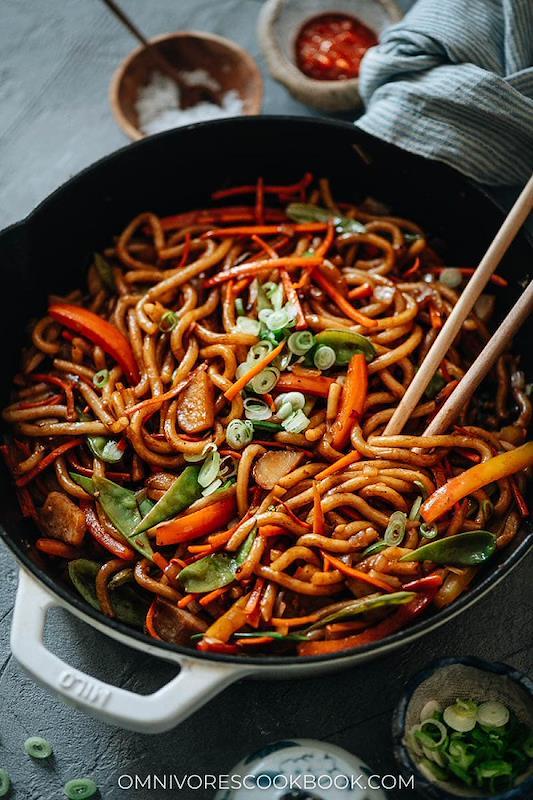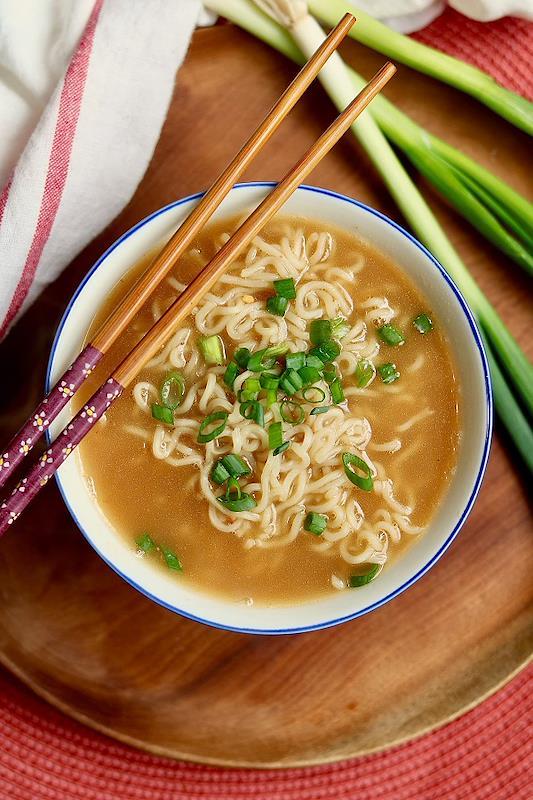
</title><meta name="robots" content="noindex">Which Japanese noodles are vegetarian?
When you are going through Japanese dishes, one that stands out is the noodles. They are an essential part of Japanese cuisine known far and wide mainly because of the influence of anime. They are usually served in hot broth with salads or stir-fried. The most popular of them all is Japanese ramen. In fact, when a person sees the phrase “Japanese noodles,” what immediately comes to mind is ramen. People usually wonder if just anyone can enjoy Japanese noodles, so it begs the question; what Japanese noodles are vegetarian?
Yes, vegetarians can eat Japanese noodles, but they have to prepare them using vegetarian ingredients only. Luckily for you, this article gives you tips and tricks on how to enjoy Japanese noodles the vegetarian way.
Who is a vegetarian?

A vegetarian is a person who does not eat meat, fish, and poultry. Vegetarians rely on plant-based foods as their source of nutrition. Even though vegetables are the main source of nutrition for vegetarians, there are some who choose to be identified with how they eat in a specific way. Below are the main types of vegetarians and what they have chosen to eat.
- Lacto-Vegetarians: they place a ban on meat and eggs in their diets just like other vegetarians. However, they rely on plant-based foods for their balanced diet but allow themselves the consumption of dairy products like cheese, milk, yogurts, and butter.
- Ovo-Vegetarian: Ovo-vegetarians do not eat meat and dairy products. But they consume eggs.
- Lacto-Ovo Vegetarians: they eliminate meat from their diets but eat eggs and dairy products.
- Strict Vegetarians: they do not eat meats, dairy products, eggs, or even honey.
People are not usually vegetarians from birth. It might be for moral, religious, environmental, or health reasons. People who are passionate about animal rights can become vegetarians to show their resolve.
Best Vegetarian Japanese Noodles
Ramen in itself is made using wheat flour, water, salt, and kansui, which are all safe ingredients for vegetarians. However, some high-end restaurants would add eggs to the dough to make it richer. The two most popular Japanese vegetarian noodles are Udon noodles and Ramen noodles.
Vegetarian Udon Noodles

These noodles are thick, smooth, chewy, and very filling. They are usually served with thinly sliced vegetables and savory ingredients like ginger, soy sauce, garlic, rice vinegar, and many more. Udon noodles are perfect for vegetarians because they are made from wheat flour, salt, and water only. This is perfect for all vegetarians and the specific diets they can be associated with.
However, one should take note that these noodles are not the actual issues, but the seasoning packets they come with. While some may contain only herbs and spices, others may contain flavors obtained from meats, poultry, or seafood. As a vegetarian, you should double-check the ingredients used in the seasoning packets. Or maybe just throw the seasoning packets away and make your noodles with plant-based spices. It will give your food the perfect flavor and the desired taste.
Remember, being a vegetarian doesn’t mean you should eat bland noodles. It can be as colorful, aromatic, and delicious as any noodles with meat and eggs. There are many ways to whip up quick vegetarian Japanese udon noodles with different additives. Use some of these safe ingredients to make your noodles.
- Chili
- Garlic (or powdered garlic)
- Broccoli
- Mushroom
- carrot
- green beans
- green peas
- Onions
- Salted peanuts
- Soy sauce
- Rice vinegar
- Sesame oil or seed
- Ginger (or powdered ginger)
- Black pepper
Japanese vegetarian Udon noodles recipe:
- Simply mix the ingredients with water in a medium-sized pot. Bring on the heat and allow to boil.
- Let the broth simmer for about ten minutes. If there are additives you wouldn’t want to eat with the soup, like ginger pieces or garlic pieces, remove them and throw them away.
- Throw in the udon noodles and allow them to become soft.
- Serve your noodles in a lavish amount of broth.
- For garnishing, you may add sesame seeds, peanuts, diced green onions, and other colorful vegetables.
Vegetarian Ramen Noodles

It is no secret that ramen noodles are by far the most popular Japanese noodles there are. Ramen noodles can vary in width and length. It could be thin and curly or thick and straight, but it usually comes in long strips.
It is for literally anyone, which makes it all better. Nothing is a barrier for anyone who would love to slurp in a delicious bowl of ramen.
Ramen noodles are very suitable for vegetarians because it is not usually made with eggs. If you give up on some of the regular ramen toppings, you can make it vegetarian. Below is a quick walk into the ingredients ramen noodles are made from:
- Wheat flour
- Water
- Salt
- Cooking oil
- Alkaline mineral water, also known as Kansui
- Potato starch
- Baking soda: this is a common substitute for kansui
These ingredients give a distinctive pale yellow color and provide the right chewy quality, which makes the broth cling to them as you slurp in the spicy goodness.
Just like udon noodles, if the seasoning packet is a problem, it can be discarded. Use the ingredients listed for the udon noodles and add these common Japanese spices for that extra yumminess.
- Furikake
- Sansho pepper
- Yuzukosho (citrus chili paste)
- White pepper
- Cinnamon
Japanese vegetarian Ramen noodles recipe:
- Add the ingredients you wish to use in a medium-sized pot and make a tasty broth suitable for a vegetarian diet.
- Cook your ramen noodles but ensure they are not overcooked.
- Spoon your broth into a bowl and add the ramen.
- Toppings usually include eggs and meat, but you can settle for green onions, nori, peas, carrots, zucchini, and baby bok choy.
- Enjoy your ramen!
Getting Japanese meals has never been easier; check out the ZenPop ramen pack to order your vegetarian ramen.
This article was originally written by our freelance writer Umm-Kulthum Abdulkareem, and edited by us.

